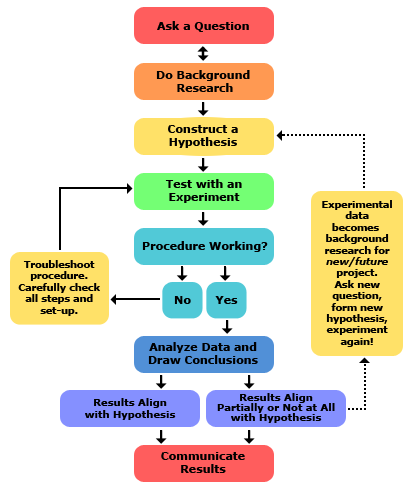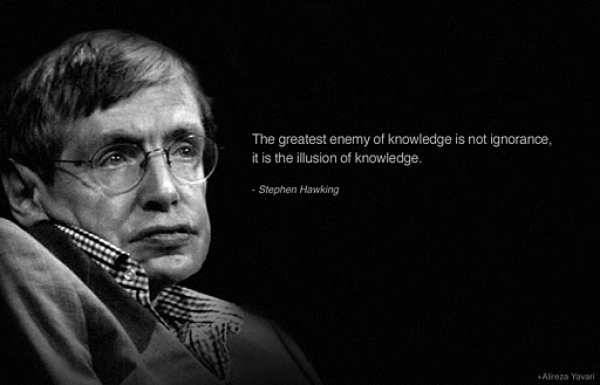
Flow chart from Science Buddies
While teaching at a science education class at Purdue University, the class showed us several popular myths of science that are ingrained in society. While tutoring this week, I decided to test the myth of theories. Why do people use this word wrong, and when does the wrong use of it start. The myth we were taught was simply that people have a misunderstanding of the hierarchical relationship stating that facts become hypothesis, which in turn become theories, and only after significant time and evidence do these theories become a law.
This misconception is straight forward and innocuous sounding, but it’s not quite right. It can also be misleading. Former President Ronald Reagan stated during his campaign that he wasn’t troubled by evolution because it was “just a theory.” This implies that an idea is not worthy of consideration until it’s a law.
Over the week I tutored kids between 3rd and 9th grades. When prompted with the question, “Please define the relationship between facts and observations, hypothesis, theory and law.” In many cases, I got a very similar answer to that of Reagan. Perhaps the most intriguing answer was from a 6th grade female that said, “We never covered that stuff in school.” I checked her book, and sure enough, there was no reference to it. I called up the school later that day to put an inquiry, but the teachers said they briefly covered the scientific method in 4th grade. They said the students were expected to know it after two lectures. Reinforcement was not given more than fleetingly throughout science classes later on. With this sort of approach, it’s easy to understand why people don’t quite get what the word “theory” really means.
Perplexed, yet hopeful I asked the same question of similar aged kids at the Indiana Academy of Math and Sciences. All students answered without fail a more correct answer stating that laws are generalizations of principles and patterns, while theories are explanations of laws. A few astute students even went on to give the example of how gravity is a law, but we don’t have a working theory of it yet.
This slight confusion and overall flippant mentality toward the concept of theories undermines the scientific process somewhat. It undermines the process because it creates confusion and people are apathetic about the truth of the entire situation. For example, we can take the Big Bang Theory. We have lots of data. This data and our observations lead us to ask questions. When we hypothesis about something, we try to reason out a story that all the facts and observations fit decently into. We know that nature, being what it is, means that there will always be outliers, and this means that not every observation and every fact will fit nicely into the box.
When we have a reasonably tidy box that explains all the facts and observations, we describe them as laws. Think of laws of nature as working guidelines that fit an extremely large majority of cases. We’re not talking 60% of cases. We’re talking 99.9% of cases. That 0.01%? Those are those outliers that are more obstinate than a toddler that can’t have candy before supper. It’s literally the general principles and patterns nature fines.
Theories are the explanation of the patterns you used to define the law with.
Now, the question becomes how to recondition the system. Teachers and textbooks have been perpetuating this erroneous relationship between law and theory to the public, which, in turn causes more confusion about some key issues, such as evolution. There has even been some disdain for the scientific method after Climategate, doubly so for areas of Christian apologetics.

From Random Celebs.
For my part in turning this around, I will be working with kids and adults as I always do with reinforcing the scientific method with the hands on, thinking approach. I will just be mindful to keep highlighting the scientific methods, especially the relationships and definitions of “theory” and “law”. What will you do in your sphere of influence?